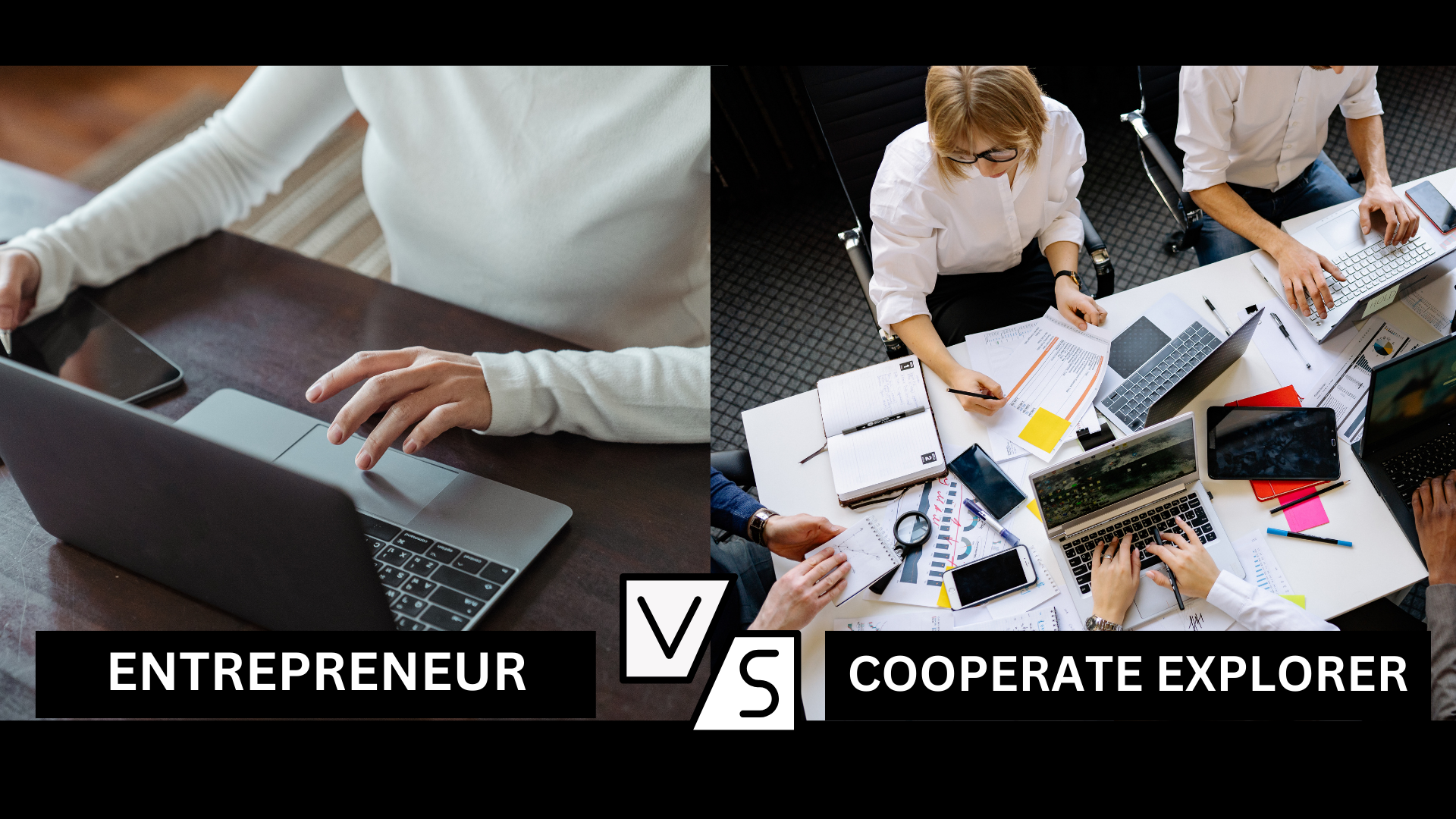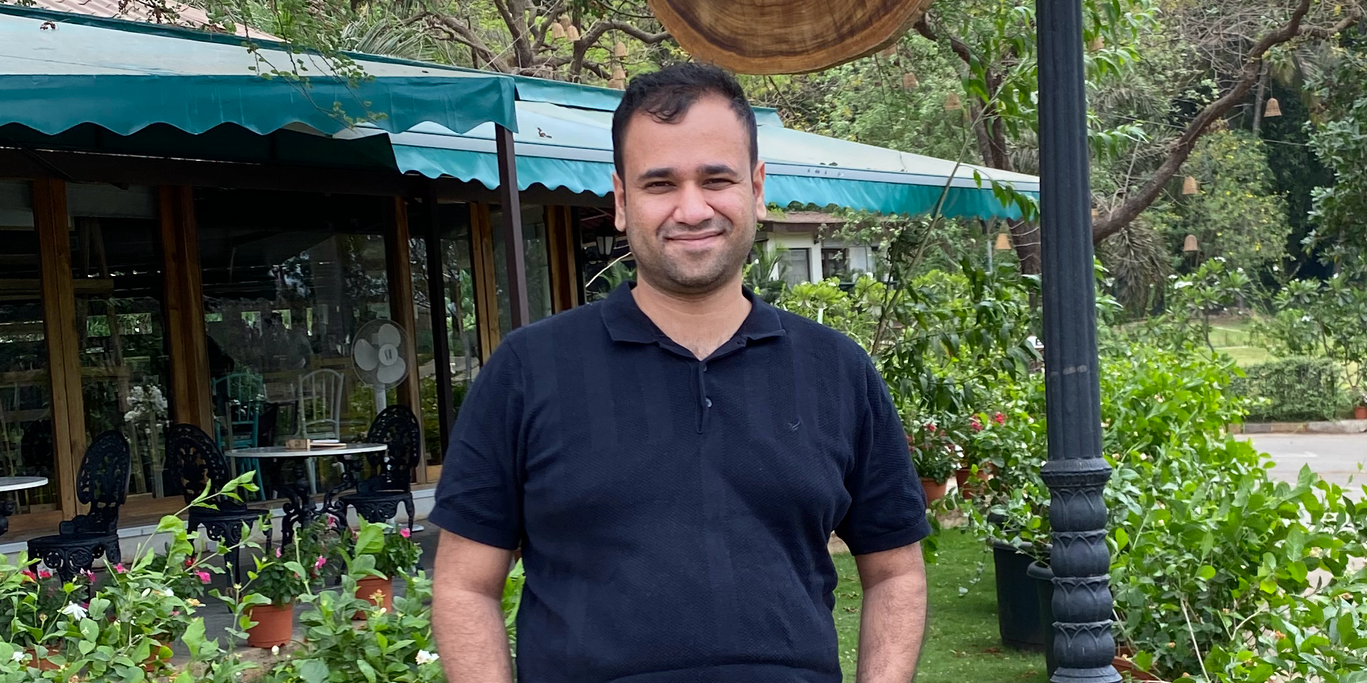This IIT-Bombay graduate has helped 119,500 children cook using solar energy, and he isn’t done yet
Vivek Kabra broke the world record with SuryaKumbh, a solar cooking festival
The development of viable means of cooking has seen an incredible evolution over centuries, and continues to evolve even today. While the use of oil resources has provided more viable and convenient means of preparing meals, the relevance of solar cooking is increasing at a time when oil resources are depleting.
According to the World Health Organisation (WHO), every year, 4.5 million people die from the indoor cooking smoke generated from burning wood and dung cakes. The WHO also revealed in one of its reports that 70 percent of energy expenditure in rural areas is spent on cooking, and that women spend most of their time in collecting wood and cooking food.
Against this backdrop, Vivek Kabra, a 32-year-old from Jalna, started Simplified Technologies for Life (STFL), a startup that designs solar appliances.
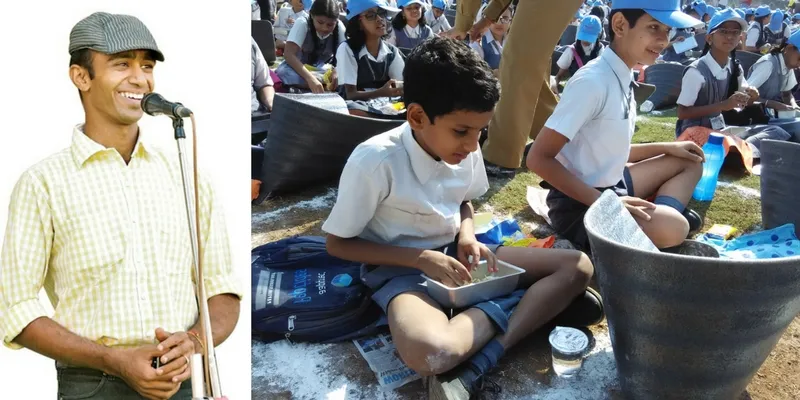
The journey
Vivek, who started working on solar cookers in 2009, grew up using the instruments at home.
He says that one of his relatives from Pune sent his family a solar cooker when he was just six years old. Since then, he has been watching his mother cook various recipes like rice, dal, cake, and dhokla, transform butter into ghee, boil milk, and roast nuts using solar power.
“Many times, she would even prepare some portion of dinner using the appliance. During winters, an evening soup made in the solar cooker was a regular affair. And she'd do this all on our terrace, which was like forty steps from the living room. So you see, I grew up conditioned that a solar cooker is a wonderful appliance that definitely saved money, and more importantly, was healthier, tastier and a huge time-saver,” says Vivek.
Vivek, for a long time, believed that solar cookers were widely used, and understood that that was far from the truth once he left home to pursue engineering from IIT Bombay.
“I left my job in 2009 to begin understanding the reason solar cookers weren't popular. Market surveys and research papers revealed three major reasons - lack of awareness, low availability and visibility, and the lack of convenience on all fronts, from procurement to usage and maintenance,” says Vivek.
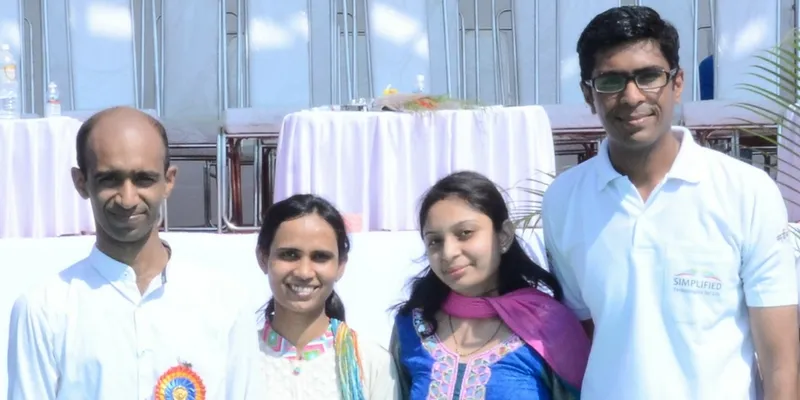
SuryaKumbh- a solar cooking festival
After two years of R&D, the team developed a family-sized solar cooker, and was only able to sell about a 100 units in the next 18 months, despite all their efforts.
“The factor that we had monumentally missed was the immense resistance to be faced for an adult mindset to change. You see, people have been cooking for ages with some means or the other, and so, there is no direct, desperate need for a new way of cooking. Add to that the general lack of awareness, misconceptions associated with solar cookers, the busy lives of potential customers, and the need for everything to be ready at the speed of light, and it’s no wonder why penetration is so limited,” says Vivek.
Facing a major roadblock here, Vivek knew he either had to reinvent himself or pursue a different line of business.
In October 2012, Vivek conducted a small experiment with a group of 42 schoolchildren. They were taught the theory of harnessing solar energy for four hours on day one, and then on day two, they were asked to make a solar cooker by themselves. Each child was given a separate recipe to cook, and was specifically asked to invite their parents to savour the sun-cooked food.
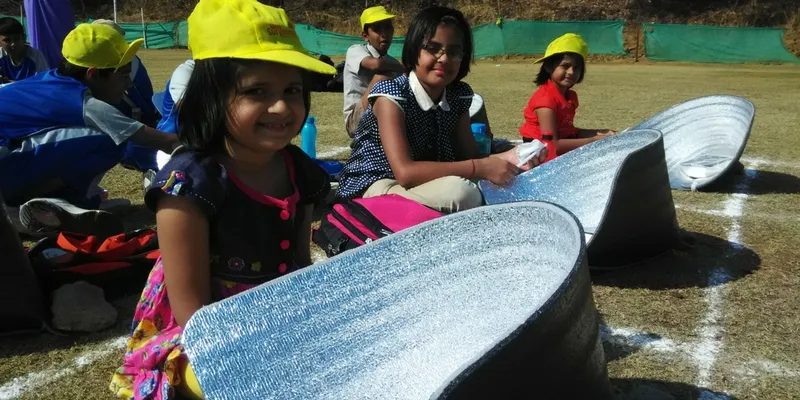
“The science teacher said with astonsihment, ‘I've taught solar cooking as concept for the last 15 years as part of the curriculum, but never once believed that it was practical. Today, after witnessing the children making their own cookers out of cardboard and relishing the wonderful food, I'm totally transformed,’” says Vivek.
In January the following year, Vivek and his team hosted their first SuryaKumbh, which saw the participation of 2,250 children from 102 schools, with roughly 20 children from each school. These kids gathered at a common ground, learned the science of harnessing the solar energy, assembled their own solar cookers, and cooked oil-free sabudana khichadi. This created a world record for the world’s largest solar cooking class, surpassing by a long way the previous record of 250 participants.
But more importantly, each child carried the oven back home, continued cooking different recipes in it, and shared the experience with their friends, family, neighbours, and acquaintances. In many schools, especially from the villages, the 20 children who had participated in the festival went back and recreated the SuryaKumbh experience with the entire school by cooking sago khichadi and sharing it with all.
Today, four years later, SuryaKumbh has empowered 119,500 children coming from a remote hamlet of Jawahar in Maharashtra to the ultra-modern city of Dubai. Eighty percent of these participants are from tribal areas where electricity, LPG, and education are all luxuries.
Each one of them took the solar cooker back home and shared the magic of cooking without fuel, fire or wire with their family and friends.
The strong support of its NGO partners like Keshav Srushti, Seva Sahyog, Paryavaran Dakshata Manch, Bharat Vikas Parishad, and the Chamber of Marathwada Industries and Agriculture has kept STFL going.
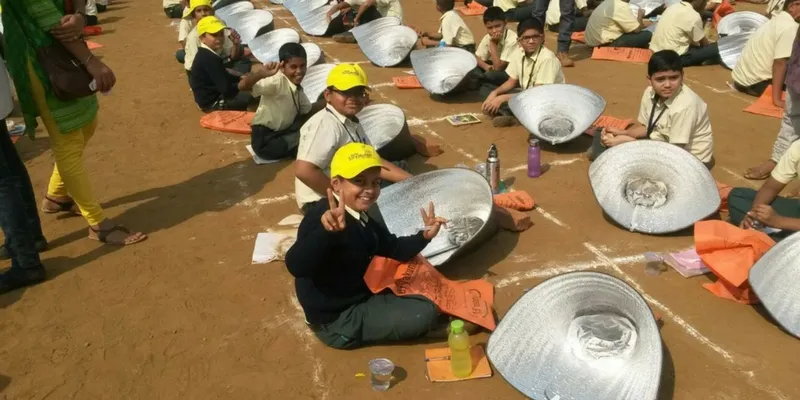
Solar cooking in the mainstream
Festival apart, SuryaKumbh is trying to effectively create a conducive atmosphere for solar cooking to be considered as a mainstream mode of cooking.
After every festival, the team gets inquiries from numerous parents for family-sized solar cookers.
“R&D being the backbone of our company, we continue to develop better, faster, and more convenient solar cookers. We are currently working on a product that can cook for an entire family of four to six people in a span of 20 minutes, which is faster than the gas appliances.
“We believe that eventually, in the next four to five years, solar cookers as a technology will become so user-friendly that you'd be able to cook right in your kitchen. And once that level of convenience is achieved, you'd see a massive dissemination, just as has happened with solar water heaters and is happening with solar electrification,” says Vivek enthusiastically.






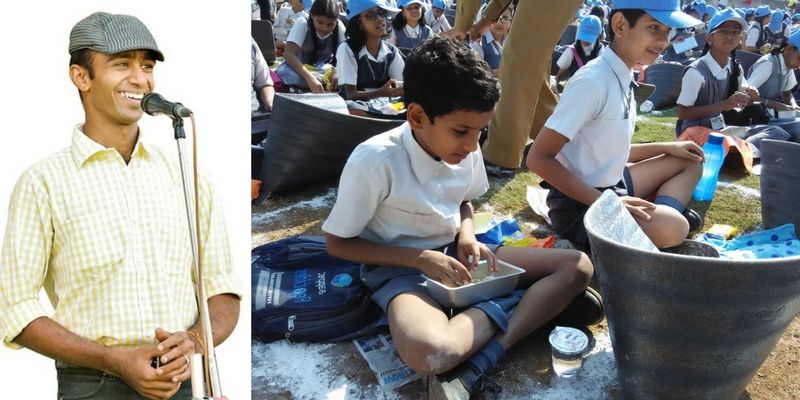

![[Startup Bharat] Y Combinator-backed BeWell Digital is enabling the digital transformation of radiologists](https://images.yourstory.com/cs/2/40d66ae0f37111eb854989d40ab39087/ImagesFrames31-1648033042143.png)
